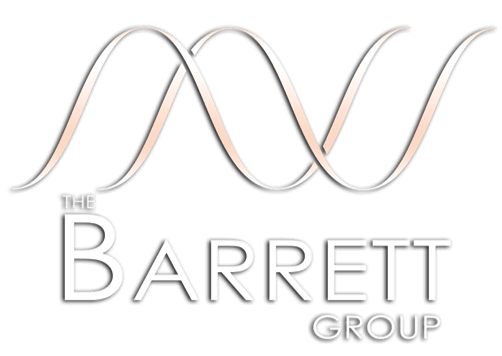At the Barrett Group we make it our business to help executives clarify their career objectives (with our Clarity Program©) and then market themselves effectively. To do this as consistently as we do, we find it useful to take stock of the market situation every once in a while. Like a swimmer lifting his or her head up over the waves and verifying position and direction. By examining our own market observations. So, let’s compare Q1 and Q4 so far to understand what seems to be happening in the executive career change market.
Note, these remarks refer only to our own clients.
In the first part of the year, the income segments of $100,000-$200,000 (total annual compensation). And above $200,000 were equally balanced at about 49% each. Some 39% of these clients state they were unemployed on average about 5.6 months before signing on. These results were quite polarized at the top and bottom end. With 43% of unemployed clients having been unemployed for 3 months or less. And 54% of unemployed clients having been unemployed for 7 months or more.

In Q4 now, these results show a budge in clients in the $100,000-$200,000 income category that has risen to almost 60% of clients vs. the first quarter’s 49%. Now 51% of clients say they have been unemployed, and the average unemployment period has lengthened to almost 11 months. So, it would seem that the middle of the market has experienced more pressure during the last six months.
Another important aspect that we look at is our clients’ motivations for seeking our services.
These vary over time, and it seems there is a coherent pattern here, too, if we compare the first quarter versus the fourth quarter so far.
Often clients reach out to us because they are reentering the job market after a pause. The pause could be because they have been with the same employer for a long time. Or due to illness, unemployment, or even other reasons. Recently we have repeatedly heard from the Bureau of Labor Statistics that people who were not actively seeking employment (and therefore not technically unemployed) have been reentering the market in the last year or two. So that not only is unemployment low but the number of employed can grow without unemployment sinking… if that makes sense.
Some 23% of our clients in Q1 cited this reentry as a factor in their need for support. This share sank in Q4 so far to about 19%. The threat of possible unemployment on the other hand rose in Q4 versus Q1 from 16% to 22%, a fairly sizable increase. Does that mean that as the expansion moves into record territory, companies are finding more and more ways to be efficient at the cost of mid-level and senior jobs?
Another classic motivation we hear a lot is “I must get into a new industry.” Now this can have various meanings. From an acknowledgement that the current industry is losing its luster to a sense of personal boredom. And the need for new adventure. It can even mean that the client sees other industries as potentially more lucrative given his or her skill set. All of these are valid perspectives on the market.
Switching industries is a specialty at the Barrett Group because we help our clients to highlight the transferability of their skills and experience both during the Packaging (Resume Refresh and LinkedIn Reboot) and the Presentation (Interviewing) career change stages.
This need to change industries has waned some though when we compare Q1 and Q4 so far. Dropping more than 12% points to just 11.6%. This may support the pressure we believe we see in the middle market. And therefore a shift in would-be career changer sentiment toward a search for security.
On the other hand, the other major motivation “My present income is too low” has risen sharply in the latest results, jumping more than 8% points to just under 20%. This certainly seems consistent with the bulge in mid-market job seeker population who have generally more upward income opportunity.
“No growth potential,” though remains a very consistent and strong motivator for our clients in both quarters at about 28%. This indicates that dissatisfaction with growth opportunities continues to drive would-be career changers to a large extent regardless of the economic cycle. With our active assistance, about 75% of Barrett Group clients find their next opportunity via the “unpublished market.” This has even greater relevance in today’s market because the unpublished market offers opportunities with potentially less competition and therefore higher compensation.
Perhaps it is time that you, too, lifted your head up and took stock of your career situation. We help hundreds of people like you every year, so reach out and let’s discuss your true potential.
Peter Irish
CEO
The Barrett Group
Distraction As A Way Of Life
Distraction as a way of life. We have discussed at some length the fact that people have very different behavioral styles, particularly the executives who come to us for help with their careers. We use the DISC instrument as a way of detecting behavioral tendencies.
The high D (Dominance) types are driven and focused but often have no patience for details or the attention span to follow longer term programs. The high I (Influencing) types are so busy being creative or talking or meeting new people and seeking new adventures that they often achieve nothing at all. High S (Steadiness) and high C (Compliance) personalities have their own particular issues.
However, all of these types can suffer professionally and personally from confusing activity with progress.
If I am busy, the logic goes, then I must be productive. Think about people you know who constantly have to listen to music or TV so that they are not left with a spare moment to reflect. Others are constantly going somewhere, doing something, again, for the same reason—so that they do not have to be alone with their thoughts and self-reflections.
Increasingly, it seems to me, American society is losing the capacity for reflection. The ability to value moments of solitude and silence in which to contemplate and listen to your own thoughts and feelings and consider the bigger picture.

Many years ago, I worked for a brash, Dutch manager in Europe who was always busy and always outspoken, though to his credit he also cared deeply about his team and their well-being. He was certainly a victim of this incessant drive to act instead of reflecting. But he also left me with one particular pearl of wisdom. At one crucial moment he whispered to me in an aside during a meeting “You know, people have more brain cells in their guts than in their heads…” Now I don’t know if this is medically correct, however, it is definitely my experience that when I make a good or bad decision, if I listen to my “gut” I will know how I really feel about the decision and sometimes change it.
Some deeply rooted, evolutionary process operates at the subconscious level, I suppose, and confirms via messages from those “brain cells” in your gut whether you have made the right choice. However, you have to be open to this input, and that requires a certain degree of tranquility, of listening, and of reflection.
Think about that hamster you’ve seen running wildly on his wheel, turning and turning and going nowhere… That is the state in which we often encounter executives who know at some subconscious level that they need to change their ways, but they do not know how. Or remember the story about the foreman and the lumberjack. The foreman notices how one of his men is always working hard but actually not producing very much timber. Suspicious, the foreman walks over and casually inspects the edge of the lumberjack’s axe.
“You know,” the foreman says, “you could be a lot more productive if you would sharpen this axe.”
“Sure, but I don’t have the time,” replies the lumberjack.
That is a perfect metaphor for businesspeople who are too “busy” to actually look after their own careers.
At the Barrett Group we employ a Targeting step at the outset of each career change program that ensures a thorough reflection on personality, short-term needs, and longer-term objectives. We call it the Clarity Program©. Here’s what one recent alumnus, Jim Lareau, has to say about its benefits:
“I hope all the other coaches have the ability to be as insightful and inspiring as Mark [his Clarity Coach] was to me. He helped me to think “deeper” about me and what I need/want/am looking for in my next great adventure. Thank you, Mark!”
So, turn off the TV, close your eyes, listen to your gut, and consider the lumberjack or the hamster. Get Clarity. Give us a call.
Peter Irish
CEO
The Barrett Group
Alone In The World
Several times in my career I have been without work. Sometimes by choice. Sometimes not. And particularly in the latter case, it can be a very scary feeling… almost as if you are alone in the world. You send all of those emails, you submit your resume, you try to engage with recruiters, you reach out to your contacts and affect some semblance of happy confidence… but in the quiet of your own mind, you may well be very afraid.
Worrying is normal, by the way, and according to Daniel Goldman (Emotional Intelligence) may have its evolutionary roots in practicing for future possible events—preparing for them so as to not be caught off guard.
But, like everything else, when taken to extremes, worrying can be destructive.

It is always helpful under such circumstances to look for some external input, perhaps from a friend, a loved one, a parent, a spiritual guide, a coach… Someone who can help you weigh the evidence and know whether your worrying is helpful preparation or just plain, frozen-in-the-headlights fear. Sometimes just being able to talk about what concerns you can help you feel better and more in control.
On the other hand, even if you are not specifically afraid, looking for a new job can be a huge amount of work and to many people, it is hard to know where to start and how to prioritize one’s time. Combing through job boards and applying can be very time-consuming, as can networking, interviewing, or talking to recruiters.
Our clients have an enormous benefit in this regard, because they have access to a six-member team, so that they never feel alone in the world, and have tremendous experience always at their beck and call.
Our clients start with a Clarity Coach who guides them through the Targeting step in our five-step career change process, the Clarity Program©. The output of this step is a clear understanding of the client’s target and an agreement about how we will approach the market together.
Next comes the Career Consultant. This team member guides the next four steps in the process (Packaging, Market Access, Preparation, and On-Boarding) and remains the sounding-board and principal client resource as the program advances.
At the right time in the process, we bring in a Researcher who helps winnow through the market using our state-of-the-art databases to select companies and contacts as relevant per the Targeting step. A Writer comes in, too, to prepare cover letters and resume versions as necessary and appropriate to optimize campaign results.
A Negotiation Coach joins the team as the offers start to come in and leverages the three decades of experience the Barrett Group has in this field to benchmark comparable salary and benefits packages and to find additional compensation elements. As a result, we almost invariably find another $10,000 to $20,000 in compensation during this step. Which is hardly surprising considering we have done this thousands of times over the years and know where to look for that hidden treasure.
Now this whole process takes time and the feelings of worry, anxiety, or outright fear do not necessarily evaporate. So, when there is a bump in the road, we also bring in our Client Concierge (one of several senior resources) who has guided thousands through this process and can literally take the client by the hand. They recognize and avoid the potholes, and help him or her focus on the straight and narrow path that leads on to career success. Now you may be the truly confident sort who does not need any moral support. But if you are not, how would it feel to have a professional team at your elbow when you face the job market? One thing is for sure: you would never feel alone in the world.
Peter Irish
CEO
The Barrett Group
The Human Touch
These days, as I understand it, most stock brokerages and similar financial service firms primarily offer exchange traded funds that essentially track a specific market basket of stocks, often something as recognizable as the NYSE or its ilk. The reason is that machines do this better than humans. They recognize the patterns faster, make the adjustments faster, and ultimately deliver a more consistent result.
That is certainly also true in many other areas of human life. When was the last time you struggled with a map while you were driving? We don’t have to anymore because the navigation has matters (generally) in hand.
In sports, I have heard that Stephen Curry improved his game using high tech lasers to track and suggest moves, but I can’t verify that. In San Francisco, there was a robotic barista as a novelty (I hope) up on Market Street. And I cannot tell you how many robocalls I personally receive and hang up on every day.

Closer to home in the job market, machines also hold sway, sorting millions of applicants for hundreds of thousands of jobs and proposing that some be invited for an interview and some receive a dear John letter (or just be quietly discarded).
Those who know me recognize that I am a fan of automation. If we can automate a process, I’m all for it… up to a point. And that point is when we actually want to listen to a prospect’s or a client’s story and help them address their issues.
It is at that point where we at the Barrett Group draw the line.
Our coaches and consultants work hard on improving their interpersonal skills, their understanding of different personality types, active listening, and simply extending courtesy and compassion to people who have reached out to us because they have one form of stress or another, be it boredom in a repetitive job, fear of being downsized, desperation after long term unemployment, or a need to finally give back and contribute to society.
Our coaches and consultants regularly go beyond the call of duty (something few algorithms would be caught dead doing) and that is why we garner great testimonials like this one from one of our clients who recently completed the Clarity Program©:
“I have no suggestions for improvement. Scott [his Clarity Coach] was excellent throughout our conversations. He helps guide you to find out what really makes you do what you do. His explanations as we jumped into the DISC profile were nothing short of awesome! If you are looking to learn about yourself, I would highly recommend using Scott and the Clarity Program. Thank you.”
Or perhaps this one from Denis Sovik, who also just completed his Clarity Program©:
“The process was extremely detailed, and Hiyam [his Clarity Coach] was flexible to work around my schedule, even making some intra-day time changes. Superb experience.”
The Clarity Program© is only the first step in a five-stage career change process that the Barrett Group has perfected over the past thirty years and with which we have helped thousands of executives clarify their career objectives and then find their targeted next step.
At least as long as I’m in charge, we will seek to balance the efficiency of automation with the caring and compassionate approach we have lived for thirty years and continue to deliver that human touch.
Peter Irish
CEO
The Barrett Group
The Great Market Mystery
Imagine the glorious future when all you have to do is go online and type in the sort of job you want, the location, and maybe the target compensation… and out pop two or three job offers.
Well, we’re not quite there yet. In fact, we may be farther away from that job seeker’s utopia than we’ve ever been because there has never been as much data available to job seekers as there is today, and oddly enough, that does not make the search any easier.
Let’s take a simple example. Suppose you want to be a Vice President of Sales. Nationally this morning on a popular on-line job board I found 4,577 such jobs advertised nationally, 121 in Atlanta, 49 in Houston, 31 in St. Louis, (MO)…
Or what about CEO (376 nationally) or CFO (948 nationally—315 senior level vs. 131 entry level).
That’s too general, you say… Well, OK. How about a full-time Operations Manager in the food industry earning at least $80,000 per year anywhere in the US? This morning the job board suggests there are 257 such jobs available, but only 3 in Houston and 1 in Buffalo.
Is that better?

The fact of the matter is that there are lots of jobs advertised and, of course, hundreds of applicants for every job. The labor involved in applying for even several of these jobs is significant, and the competition is intense. The algorithms rule and the hiring managers have the upper hand in this “buyers’ market.”
So that is why many job seekers report frustration, anger, resentment, and even outright helplessness in the data desert that the on-line job boards have become.
Anecdotally, one person who recently contacted us claimed that he had applied for more than 100 jobs (at the Director level in “Chicagoland”), had 10 interviews, received 4 offers, and that none of those offers was attractive. That’s why he came to us.
Another victim of too many interviews added this comment, “I really need to see someone who sees my experience and [doesn’t] tell me that I am over-qualified, and they can’t afford me.”
Only about 15% of our clients at the Barrett Group land their dream jobs through the on-line markets. We help them to navigate the algorithms and come out on the narrow end of the lead funnel, perform well in interviews, and then negotiate a higher offer.
So, it can be done.
Another 10% of our clients land through the recruiter market, another perfectly legitimate way to find a job—but remember, a recruiter has a very specific job description and candidate profile against which he or she screens applicants. If you do not tick all of those boxes, you probably will not even hear back from the recruiter.
Fully 75% of our clients land their next career step through what we call the “unpublished market”—so what is this mysteriously hopeful place and how can you get there?
Call it the “back door,” or serendipity, or simply good luck… but we believe you make your own luck by doing the right things in the right way.
Firstly, you need to be clear about your targets. That’s what the targeting stage of our process assures (the Clarity Program©). Next you need to be packaged and branded appropriately for your target (the next stage in our process). Only then can we really help you go to market.
Generally we start with your own network. You know a lot of people, but you don’t necessarily interact with them very often. So, get networking! Be prepared to give because “givers gain” as they say at BNI. On LinkedIn you probably know even more people (theoretically). And every one of them knows other people, who know other people…
At the end of the day, if you know how to network and use the available tools, with some support from the Barrett Group’s sophisticated research capabilities, you can almost always find someone who can introduce you to your target decision makers who even now are thinking about organizational changes, unannounced vacancies, and creating new roles they have not even published. If you happen to cross that decision maker’s desk or screen or meet him or her at some function at the right time—ta da! You are at the head of the queue with little competition and very well placed to use the excellent personal branding and interview preparation skills we have helped you hone to land that job of your dreams.
So that’s the mysterious unpublished market. It is everywhere around you… if you know how to look.
At the Barrett Group, we’ve had this slippery, shifting market in focus for thirty years, so let us know if you need a little guidance. The job market does not have to be such a mystery if you have a good guide.
Peter Irish
CEO
The Barrett Group
Is The Grass Really Greener…
…on the other side of the fence? Greener.
Most of us at one point or another in our careers feel under-appreciated, like the boss does not really see all the wonderful things we do, like the team takes us for granted, unloved, under-paid, etc. Human beings have ups and downs, of course, and it’s always hard to qualify these feelings. So, what can you do to be more confident when making such a key decision?
One simple way is to find someone you trust who as far as you can tell either has your best interests at heart or is a neutral third party who can listen to the evidence and give you an honest opinion. You remember the story of Diogenes walking through Athens with a lantern… looking for an honest man? Sometimes it can be hard to find someone you really trust.
Another approach is to actually do some research and see if your remuneration stacks up. Or if your performance on specific key performance indicators supports your self-appraisal. But truly comparable data can be hard to find, and do you have the spare time and will-power to perform such a self-appraisal rigorously?

In general, though, most such decisions (to stay or go) are actually driven by the very fundamental balancing of the three drives allegedly underlying most human (and in fact, vertebrate) behavior. Daniel Goleman in his seminal work “Emotional Intelligence” paints a simplified picture of how the limbic system (our primordial emotional guidance system) grew out of our sense of smell and therefore addresses such decisions at a very basic level. Can I eat it, mate with it, or should I run away? In other words, gratification, dominance, or safety.
We all come to the world with a basic set of behavioral inclinations that are then affected by our experience.
At the Barrett Group we use DISC as a way to capture these behavioral tendencies. We help clients understand why they behave the way they do. How this affects their interactions with others. And what, if anything, they can do to improve their satisfaction and performance.
But your life circumstances are also key. We all go through stages. Sometimes gratification is key (new car, new love, gourmet meal, etc.). While at other times we realize that safety is key and begin to fund that nest egg. At other times we want to tell someone or the world in general to “go to hell,” an expression of our need for dominance. Which impulse should you follow?
Where are you now and what are your medium terms goals? That is the key question you need to ask yourself when you feel that “Should I stay, or should I go?” question stirring in your bowels. Can I afford to drop everything and change horses? Will the pastures really be greener when I do?
Again, at the Barrett Group we use a simple Diamond Map instrument to help our clients during the Targeting stage (the Clarity Program©). Our five-stage career change process begins with clarifying where our clients are now and where they might like to be in 12 months. Our four fundamental questions relate to finances, career, health, and relationships. The result is not really scientific. But it incorporates the neutral third party aspect mentioned above, the quantitative sifting of the evidence, scope for gratification balanced by dominance balanced by safety… In other words, in an imperfect world, this instrument helps individuals under stress come to conclusions that are rational and feel right.
Here is what one recent client had to say about our whole program after signing his new employment contract:
I can honestly say that if it had not been for the life & career coaching by Greg & Julie, I would likely not been able to convert on this opportunity. Although the job opportunity did not come from the traditional networking activity that I was doing, the tools & procedures that I was coached on for the preparation of the resume & cover letter, the initial phone interview and the subsequent 8 face-to-face interviews, I can honestly say that I would not be in this position. I thoroughly enjoyed and will value for the rest of my career the work that I did with the Barrett folks. Thank you everyone!!
John Shaw, October 2019
So, when your leg starts to twitch and you feel it might be time to go, consider our Clarity Program© as a possible solution for making that key decision.
Peter Irish
CEO
The Barrett Group
Happy Landing (in less than 90 days)
In this Chairman’s Blog we like to share both general information such as statistics to help career changers understand what they are facing but also anecdotal evidence of individual’s challenges and successes. Happy Landing.
Today let’s talk about Rossalyn—definitely one of the latter.
Rossalyn became our client in June 2019. Here’s what her TBG Senior Career Consultant had to say about her at the time:
Rossalyn has been in the restaurant industry for over 20 years. She is currently the COO of a regional restaurant chain. Rossalyn has seen her responsibilities diminish over the last 2 years. At one point she had responsibilities across multiple functions reporting to the CEO. More recently others have been promoted to positions where she once had responsibility and they now report directly to the CEO, not to her as they previously had. Rossalyn would like to find a position in the industry similar to that she held 2 years ago. She is also open to other options probably in the industry. She is looking forward to the TBG Clarity Program© to help her understand how else her experience fits in.

Rossalyn went through our Targeting stage (the Clarity Program©), rating the entire experience “Excellent” by the way, in one week (we let the clients drive the timeline)!
She has a predominantly “High D” (Dominance) behavioral tendency (as do many of our clients) from a DISC perspective, so she is driven and demands a lot of herself and of others.
Here is an excerpt from her Personal Strategic Plan (the last step in our Clarity Program©):
VISION:
Working in a growth and development environment with a link to giving back / social responsibility
MISSION:
Research on different concepts, overall concept strategy and then extensive work on connections and investigation regarding culture and values of the organization
PURPOSE:
To teach, inspire and elevate the people with whom I work
GOAL 1:
Make $250K Base Salary (Financial Stability)
GOAL 2:
Role where she can learn & develop (not worried that much about a title)
GOAL 3:
Being able to give back
Her Clarity Coach rated her as highly motivated and expected her to follow through on her assignments as she progressed through the following Career Change steps (Packaging, Market Access, Preparation, and On-boarding).
Her Career Consultant also obviously was no slacker either because in less than 90 days our Chief Consulting Officer proudly announced the results in his recent email:
Our client Rossalyn landed in less than 90 days… Paula [her Career Consultant] and Rossalyn did some amazing work to make this happen. She said that she would be willing to take an offer with a salary as low as $125,000 but she ended up with over $300K total comp with a $200K base.
Happy Landing, Rossalyn! Now this hardly happens every day, but it does illustrate the effectiveness of our Career Change process, particularly when the client follows the process and demonstrates real drive. In fact, clients who follow the process are currently landing in about six months on average. As our Chief Consulting Officer went on to say about the under 90 days…
Does not happen often, but it is sweet when it does.
Regardless of your state of play, if you feel you are not earning the satisfaction you deserve from your job you might want to give us a call. Without a doubt, we can help you step on the gas professionally.
Peter Irish
CEO
The Barrett Group
Open Minds Win Big
Closed Minds Lose Out / Open Minds Win Big. As I’ve mentioned before, at the Barrett Group (TBG) we speak to tens of thousands of executives and managers each year. Many of them also fill out a survey and share their thoughts on where they are in their careers, their frustrations with their current situation, where they would like to be professionally in the future, and the primary support they would like from us.
As in most businesses, there is also a sequence of steps that prospects go through to become more and more acquainted with our services. At the second step in the process, we speak in detail about the issues addressed in their surveys and how we can prospectively help them. Some 50-60% of prospects at this stage earn between $100,000 and $200,000 per annum. About 45% of them are currently unemployed when they approach us and of these about 60% have been unemployed for 1-3 months while another 25% have been unemployed for more than 12 months.
Some are, of course, desperate to get back in the saddle and others are not.

About 50% of these prospects feel they are or were fairly compensated and more than 70% say they have specific career plans. Not surprisingly, the lower income group (<$100,000 per annum) feel worse about their current or former compensation (by about 15% points) than the better compensated group.
The emotional needs of the prospects are also quite clear in our client base that features a much higher share of dominant and extroverted individuals (High D and High I in DISC language) than the general population. Correspondingly, the prospects highlighted above fall into two groups that one might generally characterize as “victims” and “victors,” at least that seems to be the case based on the attitudes they project.
On the one hand, the victims cite statements highlighting their frustrations such as “my future earnings are limited,” “at my age a career change is necessary,” “I must get into a new industry,” and “I want a faster career track.”
The victors on the other hand are proactive and confident about managing their careers, citing statements such as “decreasing probability of promotions,” “employer management is changing,” “possible unemployment,” “job lacks challenge,” and “want independence.”
Naturally, the victims also stress the support they want from the Barrett Group very clearly, focusing in particular on “establishing a realistic career plan,” “showing how my expertise can be transferred,” and engendering “successful interviews and negotiations.” The victors generally project more confidence about their own abilities and are more focused on access to “decision makers” and ascertaining an “effective job search campaign.”
Whether you come from a place of frustration or a place of confidence, our Clarity Program© (the first step in our career change process) offers an ideal solution for clarifying your career objectives before you begin the career change process. In any case, it is critical that you approach your career change with an open mind. We have thirty years of experience in this industry. No single executive one could ever have that much experience in changing jobs.
So, simply put, the more open you are to the support we have to offer, the more you will benefit from it.
But don’t take our word for it. Here’s what one recent client had to say about our service:
The resources provided by TBG are invaluable – from resume drafting to business contacts/research, the tools cannot be underestimated. But, most importantly, the genuine service and support from my career coach, George Schulz, helped me land my new position. George’s unrelenting pushes and prods, coupled with motivational and encouraging words, were the biggest asset of the TBG program for me. Many thanks!
Kristina Brown, Senior Counsel at Brown, Moskowitz & Kallen
Peter Irish
CEO
The Barrett Group

